Voters without choice are just glorified dummies

On January 7, many people will not vote, but many others probably will. There are voters, not just first-timers, who are aching to go out even if just to see the inside of that hallowed ground called a polling booth. Having been twice disenfranchised through elections that have since passed into the annals of democracy as examples of "managed elections" or "elections without choice," it is safe to assume that these people would be desperate, seeking, even seething. Partisans will be happy to oblige calls for casting their ballot and add bodies to the count, like the tin soldiers on a game board; dissenters will be there to make a point; and those in between will be there because, well, they just would like to.
You've already met the dummy candidates, aka independents. Now, meet dummy voters.
For what are voters without any real choice, or power, if not glorified dummies? Now that BNP and like-minded parties are out of the race and unable to scupper its re-election plan, Awami League can again safely trust in voters. People can have the satisfaction, however temporary, of voting against it, or for it, and the party can have the satisfaction of still coming out victorious. In a climate described by a columnist as being "of the AL, for the AL, and by the AL," with it handpicking both its candidates and rivals, the outcome is a foregone conclusion. The dummies are just there to make the inevitable happen.
How much of a choice do general voters really have in this suffocating situation? Even if we disregard the "fear" factor playing in the background, voters, in a democracy, are entitled to have credible options to choose from, which clearly they don't at the moment. Their role has been reduced to that of a helpless participant, treasured so long as they are useful, with no guarantee of even coming out of this fruitless exercise unscathed. In other words, not only are people not getting to vote for whomever they want, but they cannot even not cast their votes. Even dissenters who are planning to vote as a protest will inevitably be strengthening the hands of the orchestrators of this catch-22 situation.
It is, therefore, no longer the sole responsibility of the Election Commission to ensure voters' presence at the polling booths. It is Awami League's too, and the party is going out of its way to get them to the booths—even those who are not happy with the government. Speaking to reporters, an influential leader from Narayanganj said, "Our appeal to voters is, vote for whomever you want. Don't vote for me [if you don't want to], but do still come to the polling station and vote, because it is your right. Don't squander your right. You have no right to criticise the government if you don't vote." Regardless of the problematic line of reasoning, the call to vote, for once, seems genuine.
But there is still a tightrope to walk lest the motley assortment of independents, fake challengers, and allies-in-disguise somehow outperform Awami League in the final vote count, thus staging the biggest coup in the history of managed elections. It will be something of a disaster for the party's rank and file if, after all the scheming and browbeating and in the absence of any real opposition, it doesn't have a landslide victory. But it will be equally disastrous if it does—at least for its attempt to show a competitive election to the outside world. So voters have their job cut out for them: they will be expected to vote against AL, but not too zealously, so that a decent, respectable-looking victory can be achieved in the end.
In such a hazy situation, we can only speculate about what the minds behind Awami League's re-election campaign are really thinking. It is a testament to the complexities of this election, and the expanding AL multiverse, that so many conflicting theories seem plausible at the same time. The official line is an insufficient measure for understanding the whole situation, and can be at odds with the messages coming from grassroots. For example, how to ensure the presence (and compliance) of voters? Partisan voters are not a problem but they don't likely form the majority either, despite extravagant claims by the party of having 70 percent of the total population ready to vote for it. So, there seems to be a "carrot and stick" policy afoot to both court and intimidate general voters.
Officially, besides frequent entreaties to vote, Awami League has already trained over 200,000 campaign workers, each responsible for bringing 200 voters to their local polling station, as part of an offline scheme. Unofficially, there have been a number of instances of threats being issued to noncompliant voters since the election campaign began. Among them were threats of breaking the hands and legs of opposition supporters, cutting non-voters or dissenting voters off from social safety net benefits, cutting off their utility lines, etc. These warnings are not to be taken lightly considering how swift past retributions were, and how a big party like BNP was all but incapacitated within mere months through mass arrests, ghost cases, and rushed convictions. According to the finance ministry, there were more than 1.28 crore beneficiaries of social safety net programmes in the 2022-23 fiscal year. BNP has alleged that the government is "targeting" these beneficiaries to fill up polling booths.
How much of a choice do general voters really have in this suffocating situation? Even if we disregard the "fear" factor playing in the background, voters, in a democracy, are entitled to have credible options to choose from, which clearly they don't at the moment. Their role has been reduced to that of a helpless participant, treasured so long as they are useful, with no guarantee of even coming out of this fruitless exercise unscathed. In other words, not only are people not getting to vote for whomever they want, but they cannot even not cast their votes. Even dissenters who are planning to vote as a protest will inevitably be strengthening the hands of the orchestrators of this catch-22 situation.
What Awami League seems to want is a restaging of the 2014 election minus the stigma of unopposed wins and voter-less polling booths. This is being done "to fool the world," as a columnist of this daily has recently argued. However, it cannot take away from the unfolding farce of an election that will be fair, competitive and participatory on paper but none of the above in reality, whether the world acknowledges it or not.
Badiuzzaman Bay is assistant editor at The Daily Star.
Views expressed in this comment are the author's own.
Follow The Daily Star Opinion on Facebook for the latest opinions, commentaries and analyses by experts and professionals. To contribute your article or letter to The Daily Star Opinion, see our guidelines for submission.

 For all latest news, follow The Daily Star's Google News channel.
For all latest news, follow The Daily Star's Google News channel. 
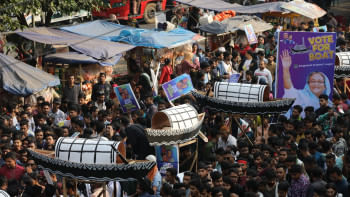
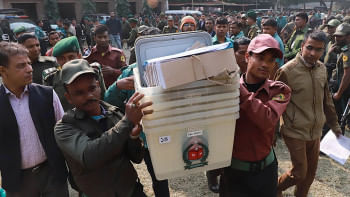
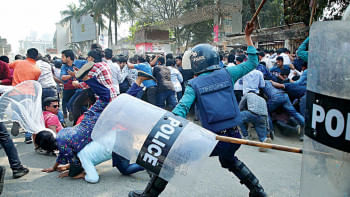
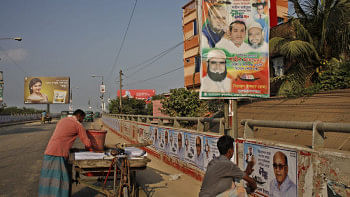


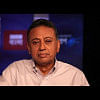


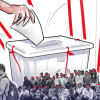



Comments